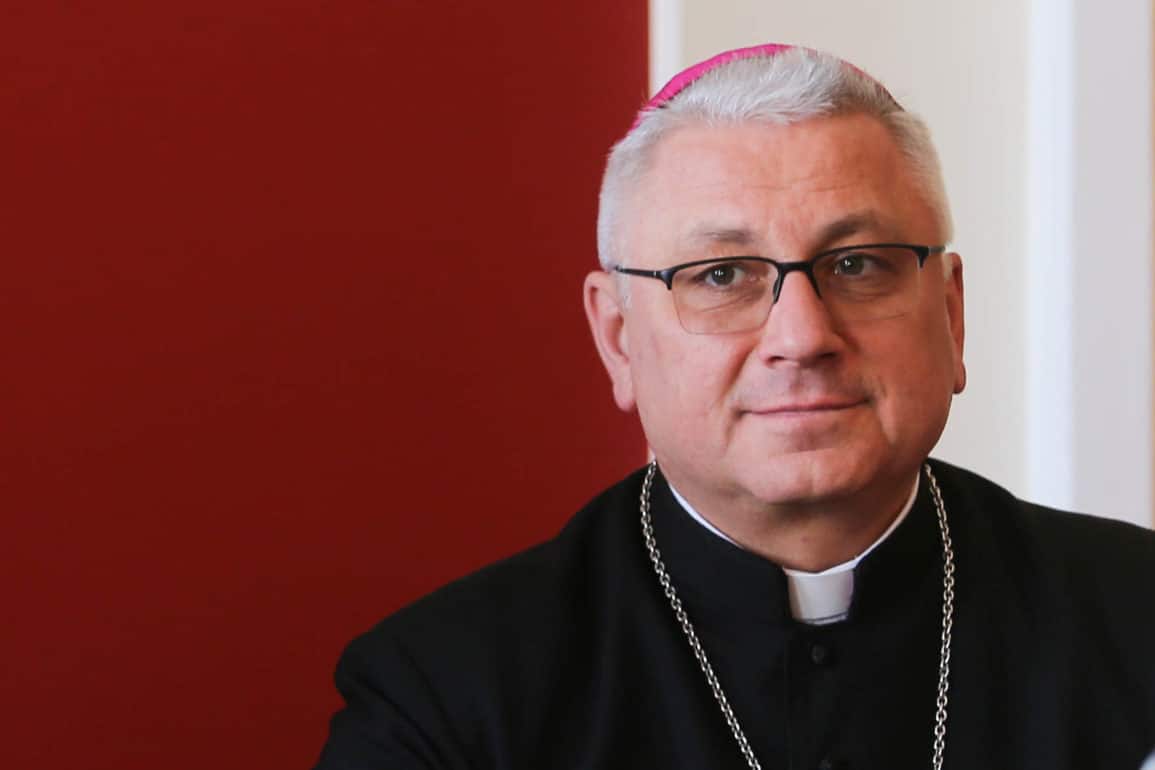The Secretary of the Polish Episcopate Lists Challenges for 2022 in comments released today by the Polish Bishops’ Conference.
“The formation and pastoral care of young people, organizing help for the needy, and responding to Pope Francis’ call to go on the synodal path in the dioceses: these are the main challenges in the Church in Poland for 2022,” stressed Bishop Artur Mizinski, Secretary-General of the Polish Bishops’ Conference.
According to Bishop Mizinski, the central events of the past year in the Church in Poland were the beatifications of Cardinal Stefan Wyszyński, Mother Rosa Czacka, and Father Jan Macha. “We thank Pope Francis for these new blesseds. The beatification ceremonies that took place in September in Warsaw and in November in Katowice were an opportunity to recall and promote, especially among young people, the testimony of their lives,” said Bishop Mizinski. He also highlighted the Ad limina visit and the meetings of Polish bishops with Pope Francis and representatives of various Dicasteries.
The Secretary of the Polish Episcopate emphasized that 2021 was another year in which sanitary restrictions related to the pandemic were in effect, necessitating adjustments in the organization of liturgical life in the parishes. He noted that “the pandemic will also be a challenge in the new year. It is important to create conditions for safe participation in Mass, in the spiritual formation of small groups, and in community life. The observance of sanitary rules is an expression of mutual concern and the evangelical love of neighbor.”
As Bishop Mizinski said, in 2022, the priority tasks of the Church in Poland will include the formation and pastoral care of young people. “This is a challenge for the entire universal Church. There is an urgent need to seek and introduce new ways of reaching young people with the message of the Gospel. Catholic communities and movements, operating in the vast majority of the Polish parishes, serve this aim. We will try to use new communication technologies to be close to the daily life and affairs of young people,” he added.
He also drew attention to the need to promote life in marriage and the family, as well as priestly and religious life. “The Synodal consultations are underway in Polish dioceses and will continue into the new year, until mid-May. In response to Pope Francis’ call, we want to search for answers and ways to accomplish the tasks related to these questions. Parishes, representatives of movements and communities, and laypeople are taking part in this process. This is our commitment to the Synod of Bishops proclaimed by the Holy Father,” he emphasized.
The Secretary of the Polish Episcopate noted that in 2022 the Church in Poland will continue organizing assistance to the needy, adapted to contemporary challenges. “Caritas Polska and the diocesan Caritas are primarily engaged in these activities, but individual parishes, religious congregations, associations, and communities are as well. In December, the president of the Polish Bishops’ Conference, Archbishop Stanislaw Gądecki, issued a statement on behalf of the Permanent Council of the Bishops’ Conference, noting that the Church in Poland supports the appeal addressed to the European countries by Pope Francis after his visit to Cyprus and Greece, asking them to allow local churches, including religious congregations and Catholic organizations, to receive people who are in urgent need of solidarity assistance from the international community,” he said.
Bishop Mizinski added that the Church in Poland is ready to help all those who express the will to come and settle in Poland, respecting the existing legal possibilities and in accordance with the current state regulations on migration.










